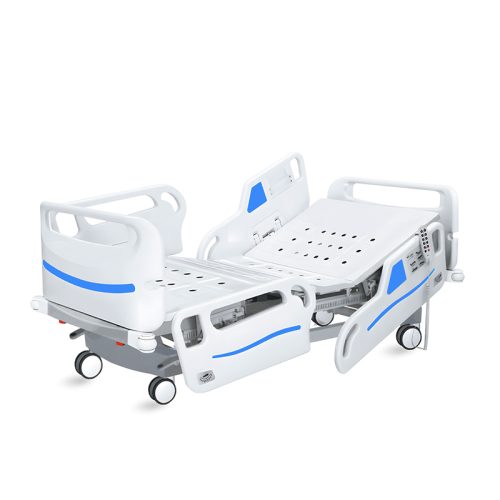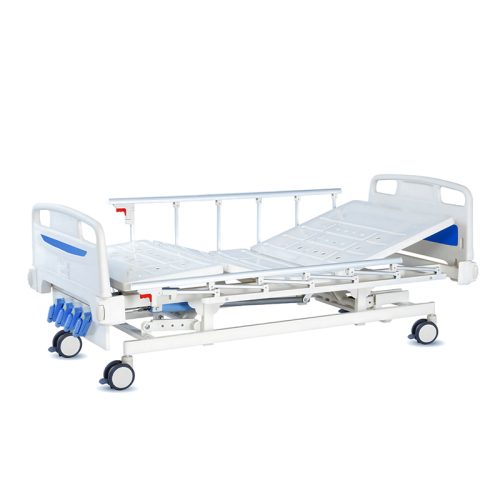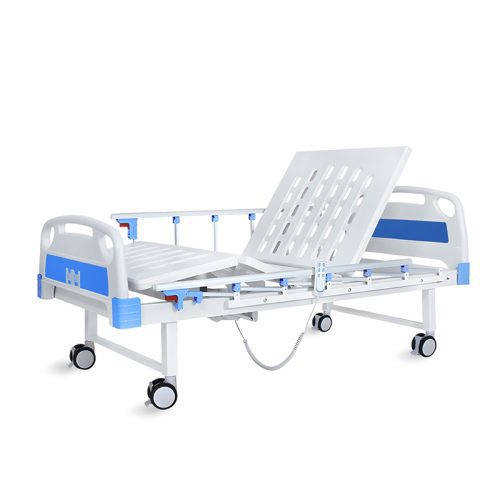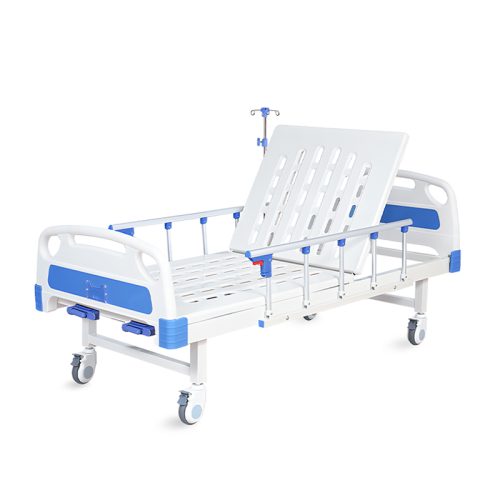
- Autokláv
Úloha autoklávového zemědělství: Zajištění bezpečné a účinné sterilizace
- Podle kelingmedical
Vysvětlíme vám, co je to autokláv, a ukážeme si, jak funguje v zemědělství a ve výzkumu, spolu s jeho výhodami pro rostlinné procesy.
—
Co je to autokláv?**
Autokláv ničí mikroorganismy pomocí vysokotlakého tepla páry, aby se zabránilo kontaminaci bakteriemi, plísněmi, viry a sporami. Autoklávy vytvářejí vysokotlaké komory, v nichž se pára zahřívá na teplotu vyšší, než je bod varu vody 121 °C až 134 °C. Pára při sterilizaci proniká hluboko do materiálů a poškozuje mikroorganismy na jejich základní proteinové a buněčné úrovni.
Zdravotnická a vědecká zařízení stále používají autoklávy, ale zemědělci je využívají, protože tyto stroje vytvářejí sterilní prostor pro ochranu plodin a sterilizaci zařízení.
—
Naše diskuse se zabývá využitím autoklávů v zemědělství.
Zemědělský průmysl se spoléhá na autoklávy, které ničí škodlivé mikroorganismy v materiálech používaných pro rostlinnou výrobu a výzkum. Níže jsou uvedeny některé klíčové aplikace autoklávů v zemědělství:
1.1.1. **Sterilizační růstová média**
Zemědělští vědci používají autoklávy ke zničení všeho živého v růstových médiích. Aby se zabránilo poškození rostlin, autoklávy ničí všechny mikroorganismy v růstových médiích včetně půdního kompostu a živných roztoků. Patogeny v rostlinném materiálu mohou způsobovat choroby rostlin a poškozená semena, což snižuje produkci plodin. Rostliny získají lepší podmínky pro růst, když se autoklávováním odstraní škodlivé organismy z jejich pěstebního prostředí.
Autoklávy zničí všechny mikroorganismy v pěstebních médiích před zahájením životního cyklu rostlin, aby se zabránilo jejich onemocnění. Ve sklenících potřebujeme přísné sterilizační postupy, abychom mohli produkovat úspěšné plodiny.
1. **Sterilizace semen**
Autoklávy fungují nejlépe v zemědělství při sterilizaci osiva. Semena často obsahují škodlivé mikroorganismy, které ohrožují zdraví rostlin a mohou způsobovat choroby. Autoklávování zničí škodlivé patogeny a zajistí, že semena zůstanou živá pro účely výsadby. Teplo a tlak v autoklávu ničí škodlivé mikroorganismy, aniž by poškodily schopnost osiva stát se silnou rostlinou.
Výzkumní pracovníci a zemědělci jsou závislí na autoklávování, aby z osiva odstranili škodlivé mikroby předtím, než je použijí k pokusům a ochraně plodin proti chorobám. Používání sterilních metod u osiva zabraňuje šíření chorob v zemědělských oblastech.
1. **Sterilizační nástroje a zařízení**
Zemědělští pracovníci musí udržovat své nástroje a vybavení sterilní, aby se zabránilo šíření nemocí mezi různými rostlinami. V autoklávu se dezinfikují všechny nástroje a vybavení, které se dotýkají rostlin, včetně nožů a nůžek, květináčů a strojů. Když se nářadí nesterilizuje, patogeny z jedné rostliny se přenesou na jiné rostliny, což způsobí, že úroda selže a zvýší se riziko onemocnění.
Autokláv řádně sterilizuje nářadí, aby se v něm nevyskytovaly patogeny, což je přínosné pro ekologické zemědělství a udržitelné zemědělství, protože se snižuje závislost na chemických pesticidech. Zemědělci chrání své plodiny před kontaminací sterilizací v autoklávu.
1. **Hydroponické systémy**
Moderní zemědělství využívá **hydroponii** k pěstování rostlin bez půdy ve vodních systémech bohatých na živiny. Protože hydroponické systémy využívají vodu a živiny opakovaně, mohou se patogeny rychle množit a poškodit rostliny v systému. Součásti hydroponického systému, jako jsou živné roztoky, potrubí a pěstební misky, se sterilizují v autoklávech.
Autoklávový systém ničí škodlivé mikrobiologické činitele v materiálech, aby se nedostaly do čistého hydroponického prostředí. Používání autoklávů pomáhá udržovat rostliny zdravé a přináší lepší výsledky sklizně.
1. **Biotechnologie a výzkumné aplikace**
Zemědělský výzkum v oblasti biotechnologických genetických modifikací a rostlinných tkáňových kultur vyžaduje pro dosažení výsledků pokusů naprosto sterilní podmínky. Systém autoklávu ničí bakterie na Petriho miskách, zkumavkách, pipetách a dalších laboratorních předmětech a sterilizuje rostlinná pletiva pěstovaná v kultivačních médiích. Výsledky výzkumu se mohou stát nespolehlivými, pokud vybavení a vzorky nejsou řádně sterilizovány.
Výzkumní pracovníci potřebují sterilní podmínky pro provádění pokusů s rostlinnými tkáňovými kulturami kultivací rostlinných buněk nebo tkání ve zkumavkách. Autoklávování zařízení a růstových médií zcela odstraňuje kontaminaci, takže výzkumníci mohou důvěřovat svým výsledkům a pokračovat ve výzkumu zlepšování plodin.
—
1.1.2. **Přínosy používání autoklávů v zemědělství**
Používání autoklávů přináší zemědělství řadu výhod, které pomáhají zlepšit zemědělské postupy i vědecký výzkum. Mezi hlavní výhody patří:
- **Zlepšení zdraví rostlin**: Autoklávy ničí všechny škodlivé mikroorganismy v pěstebních médiích a zařízeních, aby rostliny dobře rostly a produkovaly více.
- **Prevence nemocí**: Autoklávované nářadí a materiály zabraňují přenosu chorob, což brání kontaminaci rostlin i ztrátám na úrodě.
- **Efektivita**: Systém autoklávu rychle ničí patogeny v materiálech rychleji než jiné dezinfekční procesy a potřebuje méně zásob.
- **Vylepšený výzkum**: Zemědělští výzkumníci mohou bezpečně provádět experimenty bez kontaminace, protože autoklávy zajišťují pro jejich projekty nezbytnou sterilitu.
—
1. Závěr**.
Moderní zemědělské postupy jsou závislé na autoklávech, které účinně čistí a dezinfikují všechna růstová média a zemědělské nástroje. Autoklávy vytvářejí sterilní prostředí pro rostliny, které přináší lepší sklizeň a výsledky výzkumu.
Zemědělští profesionálové, kteří používají autoklávy, lépe chrání své plodiny a zároveň pracují na vyšší produkci. Budoucnost zemědělství závisí na autoklávech, které pomáhají zemědělcům vyvíjet lepší metody a zlepšovat zdraví rostlin na celém světě.
—
1.1.2. **Často kladené otázky (FAQ)**
Hlavní účel autoklávu v zemědělství.
Zemědělští výzkumníci a zemědělci používají autoklávy k ničení zárodků v pěstebních materiálech a rostlinných materiálech, aby jejich zařízení zůstala bez škodlivých biologických hrozeb. Výzkumná zařízení jsou závislá na autoklávech, které odstraňují zárodky ze zkušebního vybavení a pěstebních roztoků při vědeckých experimentech.
**2. Jak se v autoklávu sterilizují semena?**
Autokláv ničí škodlivé bakterie na semenech sterilizací párou při teplotách 121 °C až 134 °C. Teplo z autoklávu zničí škodlivé mikroorganismy na semenech, ale jejich klíčivost zůstane nedotčena.
Otázka se týká schopnosti autoklávů dezinfikovat půdu pro použití.
Vysokotlaká pára vycházející z autoklávů ničí všechny nebezpečné patogeny v půdě a růstových médiích. Tato metoda se nejlépe osvědčuje, pokud chcete chránit rostliny proti chorobám v kontrolovaných sklenících.
Zde se hodnotí účinnost autoklávů při dezinfekci hydroponických systémů.
Autoklávy pravidelně sterilizují všechny části hydroponických systémů včetně živných roztoků a vybavení, jako jsou trubky a zásobníky. Hydroponické systémy jsou díky ošetření v autoklávu chráněny před škodlivými zárodky.
Zemědělský výzkum vyžaduje sterilizaci, aby byly jeho výsledky chráněny před kontaminací.
Sterilizační nástroje pomáhají vědcům zabránit kontaminaci pokusů, která by ovlivnila výsledky výzkumu, zejména při genetické a biotechnologické práci s rostlinnými tkáňovými kulturami. Autoklávové systémy udržují laboratorní vybavení a spotřební materiál sterilní, aby vědci mohli dosáhnout správných výsledků výzkumu.
📧 E-mail: inquiry@shkeling.com
🌐 Webové stránky: www.shkeling.com.cn
Těšíme se na úspěšné partnerství s vámi!






